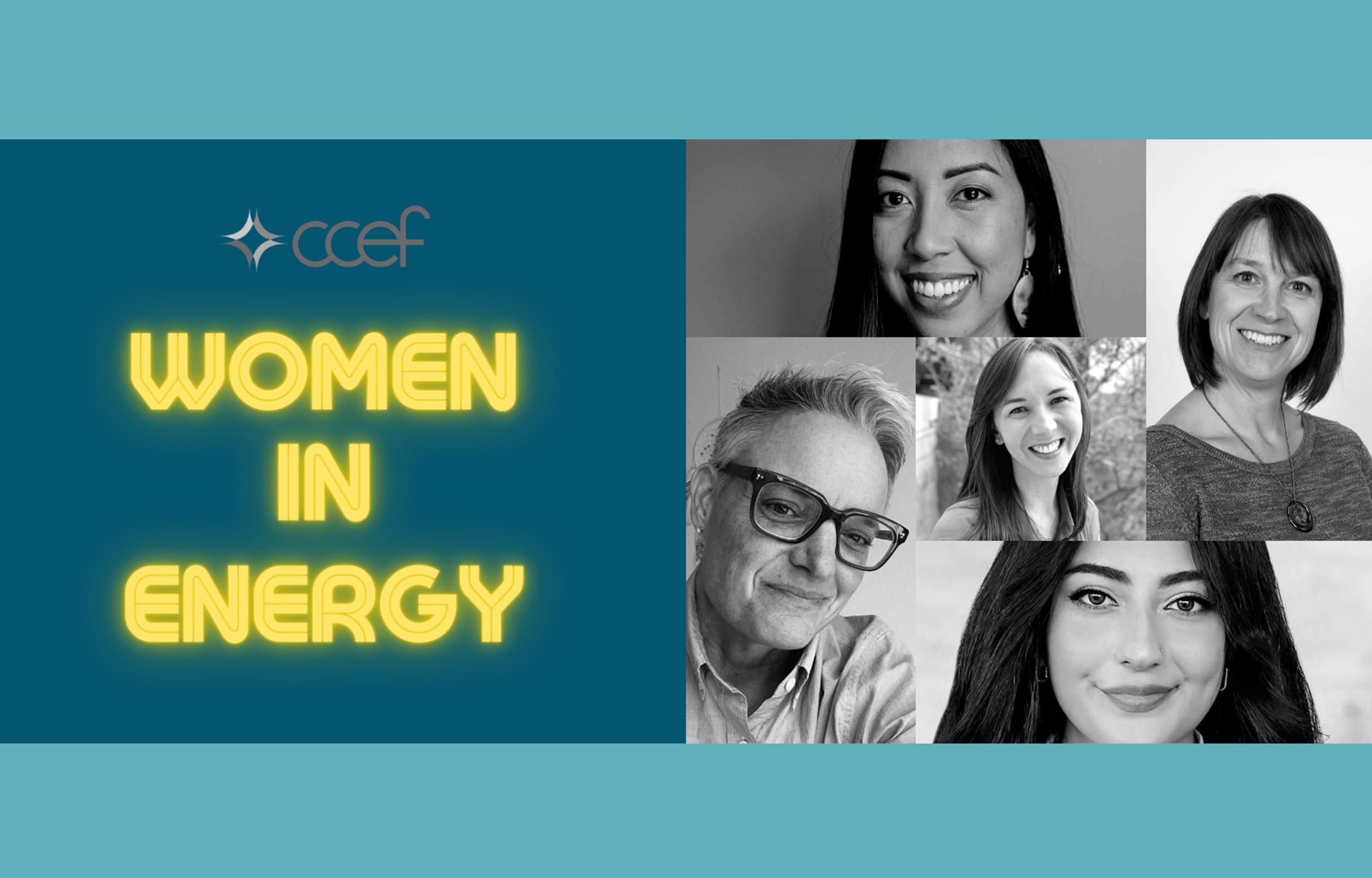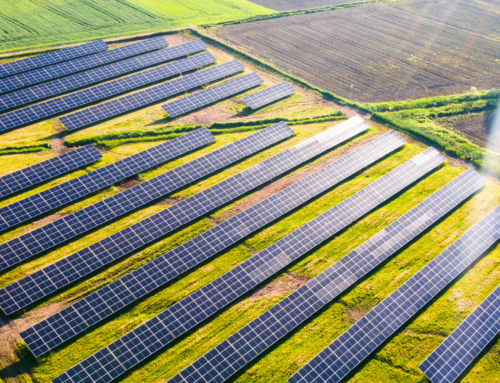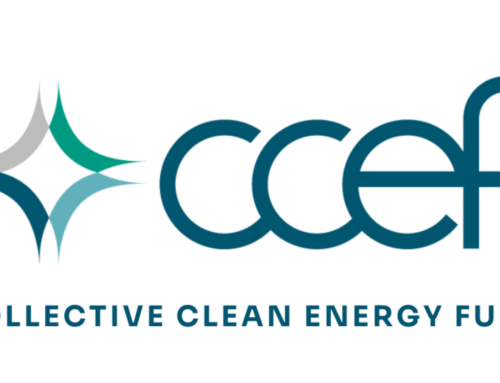Many women have shattered the glass ceiling in science, technology, engineering, and mathematics—women like Edith Clarke, Mária Telkes, and Denise Gray. Progress in clean energy would not have been possible if not for these women. This March, we are celebrating Women’s History Month by highlighting the ladies of CCEF and showcasing why the world needs more women in energy and finance.
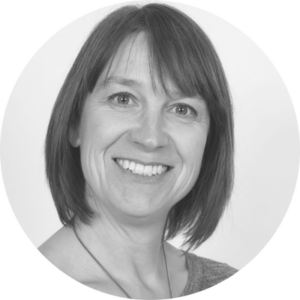
My interest in clean energy—photovoltaics specifically—began in 1997 when I interned at Solar Energy International and learned about solar design and installation along with green building and other renewable energy technologies. At that time there was no grid interconnected solar so it’s been really interesting to witness and participate in the growth of the solar industry over the last 25 years. My first clean energy jobs provided some field experience with solar and storage for off grid cabins and I also worked in the building energy modeling field for a while. But then the advent of Amendment 37 in Colorado, which established a renewable portfolio standard for the investor-owned utilities, opened up a lot more opportunities in the business of solar and I’ve been able to work in sales and project development with several solar companies over the years. The commercial solar market has been a particularly tough nut to crack with a constantly changing environment for incentives and finance structures so I’m really enjoying my role at CCEF helping clean energy contractors realize more projects with low cost finance tools.
Women bring a different perspective to the team and have valuable insights that can benefit your business. Diversity leads to greater innovation and creativity! There are lots of potential roles for women in clean energy but we are underrepresented in so many of them. Women need more opportunities to be working on the project site or at the technical design “drawing board” because these kinds of “hands on” and technical experiences are essential for deeper understanding and success in other roles in the clean energy industries—including leadership. And while we’re talking about this, let’s give women equal pay too!!
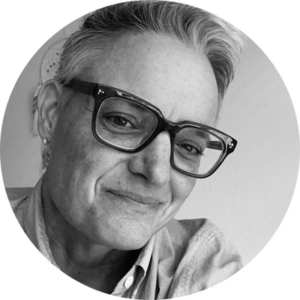
Heather Braithwaite
Chief Investment Officer
My interest in energy and finance came about as a result of my studies at CU Boulder. I took an undergraduate course in Climate Change Science and that fueled my passion for finding solutions for this global problem. I soon realized that in order to make these changes, we would need capital to do the work needed to make a large and lasting impact. I have now been working at the intersection of clean energy and finance for over 15 years and it’s been very exciting to see how these merged sectors have grown together.
When I started working in the merged clean energy and finance world, I did not have many female identified colleagues. Today that is changing and it is sooo exciting. It is exciting because now we have a more diverse approach to solutions. We are moving towards a “human” approach inclusive of all voices, including women.

Emily Richardson
Programs Manager
Prior to working in energy finance, I worked on federal clean energy policy with the ultimate goal of advancing solutions that can help combat global climate change. A common theme of this work centered around cost of projects, financing options, and availability of funding. While I still believe policy has a strong role to play in a clean energy transition, I was eager to move into a role that could creatively address the financing challenges of clean energy and how we could work within our current financial system to alter structures and increase access and equity. I can’t magic away certain aspects of our society that rely heavily on institutional banking systems, but I can work within this system to promote projects that are good for the planet and good for people. The energy and financial sectors of our country are fraught with inequities and historic discrimination – I was eager to jump into a field where I believe I can encourage meaningful change that incorporates various voices that have been missing in the past.
Historically, women are underrepresented in both STEM fields (including the energy sector) and the financial sector, particularly in positions at the top. In general, I believe that a diverse team is extremely important for any sector, but when talking about an entire transition of our energy system – where we get our power, how it is transported (or distributed), how we pay for it, how we use it, and how waste is disposed of – it’s even more critical that we have a multitude of perspectives to ensure this transition is serving communities in an equitable manner. Energy impacts every aspect of our lives. Reliability, cost, and pollution/health outcomes that result from our energy sources are enormously consequential and impact people in different ways. Diverse perspectives, such as those brought by having more women at the table, have huge potential to create more positive team environments where everyone is empowered to speak up, as well as lead to more creativity and innovation simply as a result of differing backgrounds and lived experiences. Our work at CCEF is at the nexus of energy and finance – this involves engaging with diverse communities to identify projects, working with a multitude of potential borrowers to award funds, and encouraging community support. Who we send to communities and who represents us in these conversations determines who engages with us as a result and is the recipient of funding. Having more women in these positions will ensure the end-users of our products are fairly represented. Ultimately, the decisions we make in this energy transition impact *everybody* – so, the decisionmakers should be representative of *everybody* in this society.

Nabeeha Kazmi
Residential Business Development Associate
I have always been interested in clean energy. I spent a good chunk of my undergrad doing research on topics related to the environment, including pollution and renewable sources of energy. I’ve always told myself that I want to create a bigger impact on my environment and the world, so I started to do more research on different topics that I’m passionate about such as clean energy, sustainable living and political reform. Stumbling upon RENU, which is the perfect intersection between business, energy and finance, was like winning the lottery.
Most industries are heavily male-dominated and looking at contractor companies and governmental agencies, it is no different. It is very important for women to have several seats at the table to not only bring focus to specific topics that otherwise might be overlooked, but also because in many communities, women are the pillar in educating as well as introducing new ideas. Regardless of the geographical area, educating and giving women these opportunities means educating the community and giving everyone a voice. Diversity and equality is important in all aspects of our lives, and this aspect should be no different.

Allie Madden
Marketing & Community Engagement Manager
I’ve always considered myself an environmental steward and activist through communication. It is so important for industries like energy, finance, and business to include female voices because we are so often the most passionate voices for change. Our children, our children’s children, and the generations that follow will all live to see the outcome of our action—or inaction—today.
What we’re doing at CCEF is instrumental in fueling this change and giving more diverse communities access to funding the clean energy projects of the future. I consider myself so lucky to work amongst women who are making this happen!


